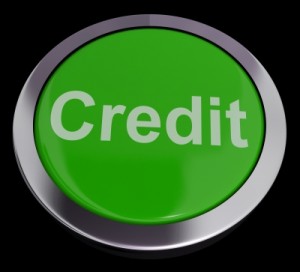Reader Request: Credit Scores and Credit Reports
My friend ED recently submitted a personal finance-related question to us and we’re happy to address it today! If you have a question you’d like to ask, either about something objective like ED’s question or just what our personal opinion is on something, please email us at evolvingPF at gmail dot com or surf over to the Contact Us link at the bottom of the page to use the anonymous submission form.
Our reader question this week concerns credit scores:
“I want to know if it’s bad that I don’t know what my credit score is. Is it worth whatever those people (whoever they are) want you to pay for it? Is it more of a need-to-know when I am buying a house or something? In the meantime, is there a way to not be ignorant but also not pay?”
 What Is a Credit Score and What Is a Credit Report?
What Is a Credit Score and What Is a Credit Report?
There are three major institutions that compile credit information on consumers: Experian, TransUnion, and Equifax. They each create both a credit score and a credit report for an individual.
The credit report is a compilation of all the credit-related activity for an individual in the last seven years – like credit cards, student loans, and failure to pay bills, etc.
The credit score is supposed to reflect the risk of lending to you. A high score (up to 850) means that you are low-risk and a low score (down to 300) means that you are high-risk. If you have a high credit score that means that you probably have: 1) a long history of making your loan payments on time, 2) a low amount of debt in comparison with how much you have been authorized, 3) various types of credit (revolving like credit cards, installment like loans), and 4) not pursued new credit recently (source).
Why Do Credit Scores and Reports Matter to Me?
Your credit score was only intended to matter when you want to take on new debt, like opening a credit card or applying for a mortgage. For that usage, if you never want to take on new debt, your credit score is irrelevant and could even be nonexistent, as Dave Ramsey advocates. However, it is increasingly common for landlords and employers to reference the credit scores of their applicants to help evaluate the risks they are taking on by doing business with them. For instance, if they see a terrible credit score that could indicate that the applicant is unlikely to pay her rent on time or she may be untrustworthy in handling other people’s money.
Most people, however, need good credit scores because they do use debt throughout their lives – mortgages, car loans, credit cards, etc. A higher credit score will give you access to more credit and at lower interest rates, which can save you money overall if borrowing is really necessary.
I would say, though, that you should be more concerned about your credit report than your credit score. It’s important to check your credit reports frequently to make sure all the information is accurate. A mistake against you could lower your credit score and affect your ability to borrow if left uncorrected. Even if you don’t plan to open new lines of credit, monitoring your credit report will let you know if your identity has been stolen and accounts have been opened in your name.
What Should I Do Concerning My Credit Score and Credit Report?
You should guard your credit score all the time in the sense that you should be careful to pay all your bills on time, not run up a large balance on any one of your credit cards (even if you pay them off in full every month) (source), and be vigilant about correcting errors on your credit report.
There are some people who try to actively increase their credit scores, either because they want to get to a perfect 850 or because they want to get a great rate on a loan in the near future. Some strategies to increase your credit score include (source)
- preventing any credit score inquiries (such as by not applying for new credit)
- asking your lenders to increase your credit limits
- taking out a small installment loan if you haven’t had any (tread carefully as you will essentially be paying interest to try to increase your score)
Even if you’re not trying to increase your credit score, you should still monitor your credit reports for accuracy. Optimal monitoring would be to pull one credit report from one of the credit reporting agencies every four months, rotating so that you are checking each credit reporting agency’s report on you once per year. If you see any errors, notify both the credit reporting agency and the lending institution.
Where Can I Get My Credit Score or Credit Report?
You can receive one credit report for free from each of the credit reporting agencies once per year through AnnualCreditReport.com. This is the government website that has been set up exactly for this purpose. You cannot receive your credit score for free through this website, but you can buy a viewing of your score directly from one of the credit reporting agencies if you so choose (source).
There are many other businesses that want to provide you with your credit reports or credit scores for a fee or in return for signing up for a service such as credit monitoring. If you choose to work with any of them, make sure that you aren’t just paying for something you could get for free. On a couple occasions I have signed up for “30 days free of xyz service” to get my credit score immediately and have canceled the service before I had to pay anything. This was a free way to view one of my credit scores (remember, there are three!) but you have to be very careful to cancel before the service starts charging you.
To summarize:
- It is important to monitor your credit reports and you can do that for free through AnnualCreditReport.com.
- Your credit score matters a lot when you want to borrow money, but most of the time you just need to guard it.
- There are strategies to increase your credit score if you need a great lending rate in the future, but the best way is to make all of your payments perfectly on time for the long term.
To answer your question a bit more explicitly, ED, no, I don’t think it’s necessary to know what your credit score is most of the time, but I do think you should continuously monitor your credit reports. You should practice good credit score-raising habits all the time anyway so you don’t really need to know what your score is specifically! When you are planning to apply for a big loan like a mortgage you may want to know what your credit score is going into the process so you have an idea of what rates you will be offered and you may even choose to undertake some strategies to actively increase your score. All of that is optional because 1) you should shop around for the best loan terms anyway and 2) there’s not a whole lot you can do to impact your credit score in the short term.
Are you vigilant about monitoring your credit reports? Do you like to know your credit score and how do you check it? Have you ever tried to actively increase your credit score? When you were planning to take out a mortgage did you do anything special with your credit score?
photo from Free Digital Photos
Filed under: debt · Tags: credit report, credit reporting agencies, credit score

 Don’t Buy into the Pro- or Anti-Credit Card Hype
Don’t Buy into the Pro- or Anti-Credit Card Hype “I Want a Credit Card, But I’m Scared”
“I Want a Credit Card, But I’m Scared” Adding Credit Cards – How Many Is Too Many?
Adding Credit Cards – How Many Is Too Many? Why Do Stay-at-Home Parents Need Their Own Credit Cards?
Why Do Stay-at-Home Parents Need Their Own Credit Cards?


I used CreditKarma to keep an eye on my score. It’s not an official FICO score, but it gives you a good idea of where it is based on your TransUnion credit report. I’ve also heard good things about CreditSesame, which is the same thing but based off of Experian.
Edward Antrobus recently posted..3 Ways to Get Rid of Your Old Cell Phone
Thanks for the tips! A credit score estimate is good enough, I think.
I also use CreditKarma to keep an eye on my score. As far as I know, it’s fairly accurate. It’s taught me that I shouldn’t use my credit card much for a month or so before I apply for a mortgage. It’s weird how much non-revolving credit balances impact your score.
Also, I’ve got a question for you. Why are there three credit bureaus? It’s always seemed like a strange system to me.
Ross recently posted..Financial update – Q4 2012
That’s a good idea to track what makes short-term differences and apply your knowledge right before applying for a loan. I will keep that in mind for when we’re gearing up for a mortgage.
I don’t know why there are three – I don’t think it has to be that way! I think there are non-national credit reporting agencies and there is ecredible, which estimates your loan-worthiness based on non-debt payment history like rent.
Well CreditKarma advocates, now I have an idea of what my credit score is-shazzam! Although I’m not so diligent about getting my reports as often as I should. I guess that’s in the ‘things I should do more frequently that would be really good for me’ boat (see website).
Emily, it’s amazing sometimes when I think about how important this credit report is, and how most individuals are not even aware that it exists! Credit reports capture so much financial data about a person, it’s almost too important not to check it at least once a year. Banks and other financial institutions use it all the time to help make decisions on loans, so little mistakes can really give you headaches when trying to get approved.
Pat Drummond recently posted..Free Credit Report Canada: 3 simple ways to get a free report and score
Exactly so!
[…] obtain a free credit score. In general, I don’t think you need to know your exact credit score. You should check your credit reports regularly to make sure there are no errors, but beyond that you really don’t need to do much else to guard […]
[…] your credit: Everyone should practice the basic financial hygiene of monitoring her credit reports at least once per year. The purpose is to ensure that all your accounts are being properly reported […]
[…] reading: Reader Request: Credit Scores and Credit Reports; “I Want a Credit Card, But I’m […]